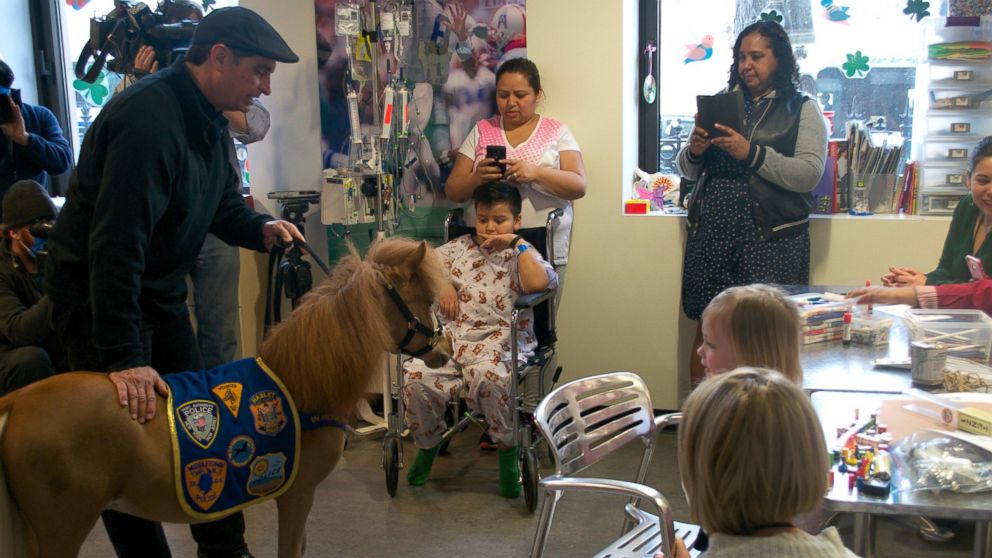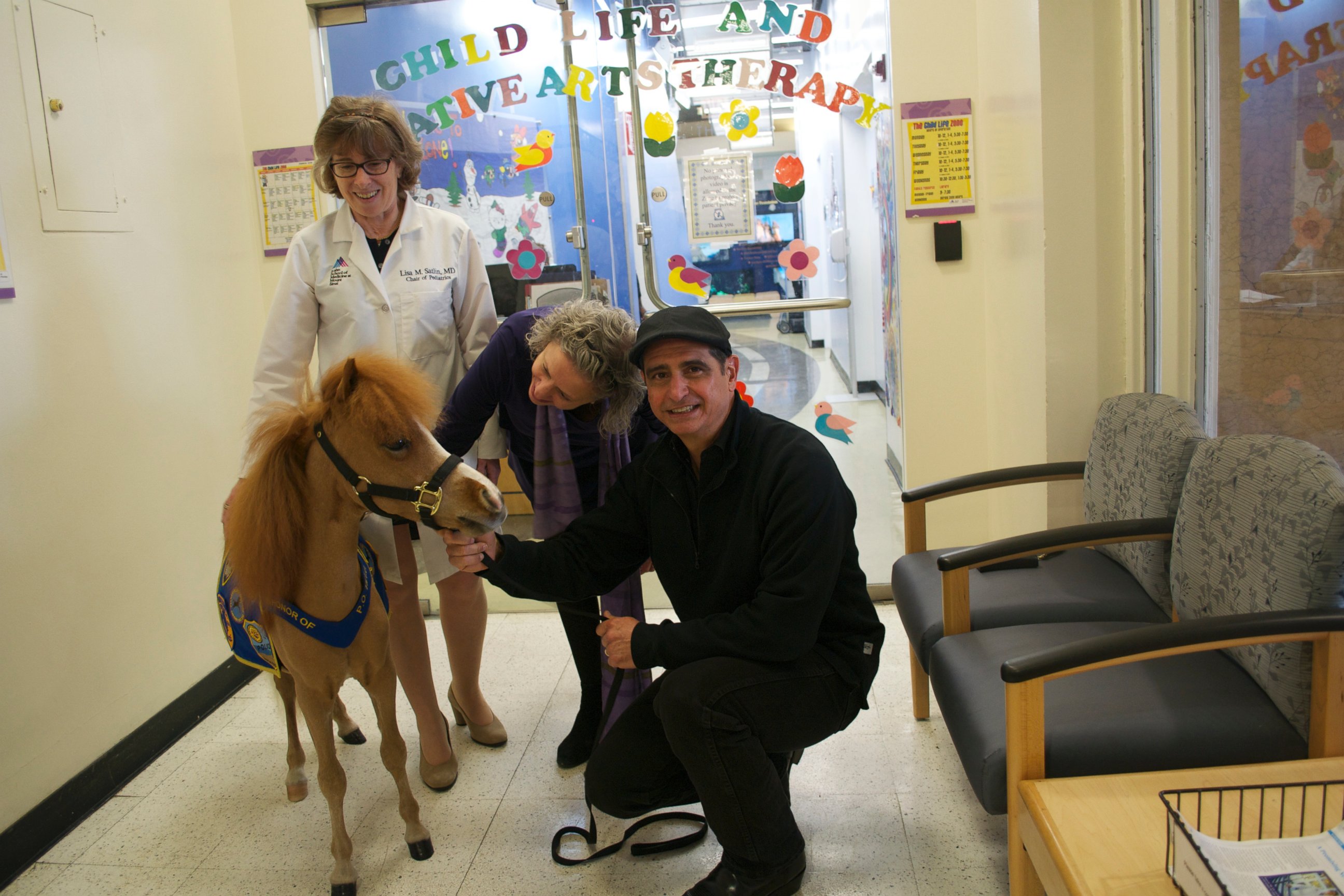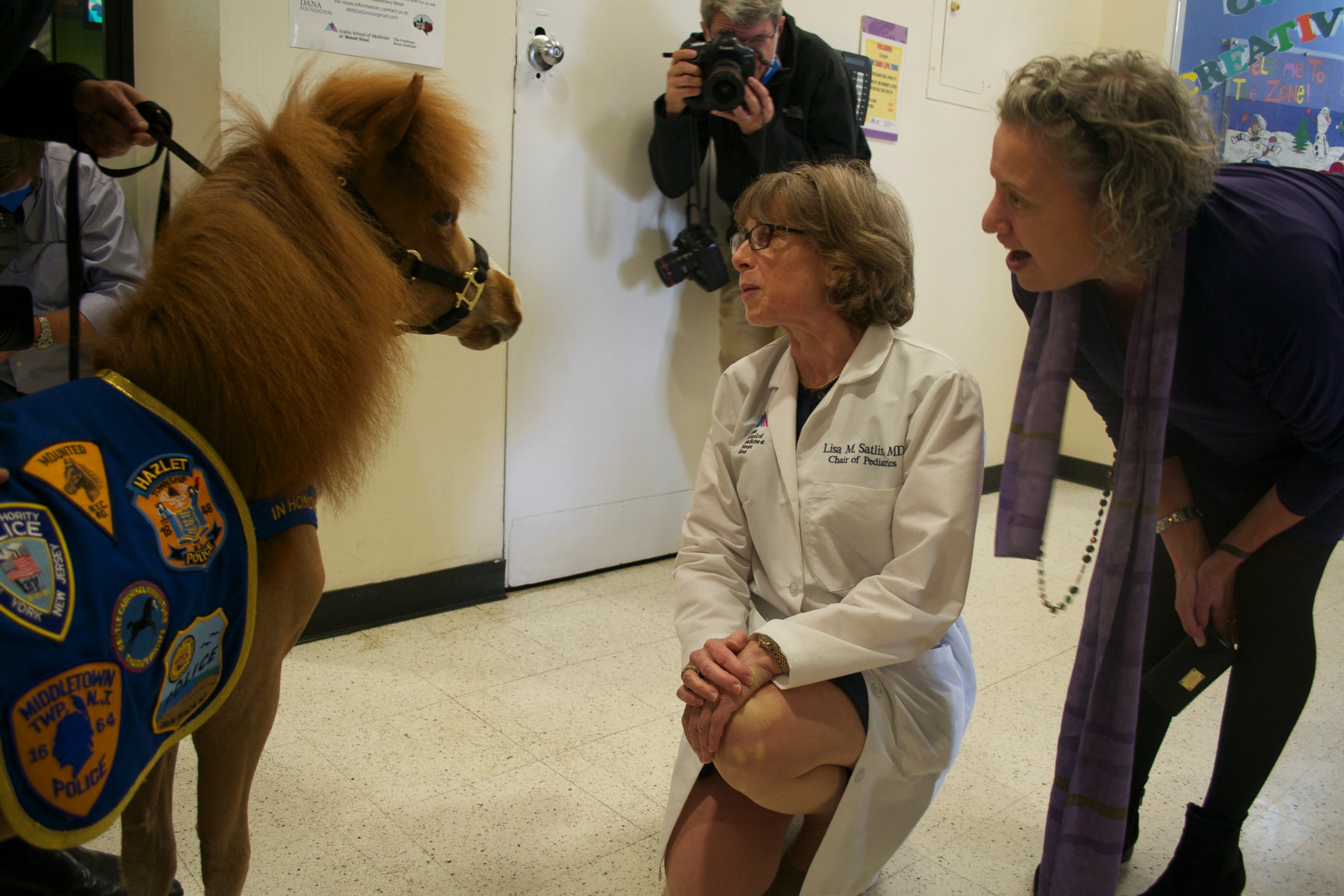Honor, the Therapy Mini-Horse, Brings Cheer to Ailing Kids at NYC Hospital
Honor, the therapy mini-horse, visited pediatric patients this week.

— -- Pediatric patients got a surprise this week when they were greeted by a special four-legged guest at the Kravis Children’s Hospital at Mount Sinai Hospital in New York City.
Honor, a therapy mini-horse, visited with children at the center on Wednesday to bring a dose of the unexpected to the hospital.
Diane Rode, director of Child Life and Creative Art Therapy, told ABC News the children, between the ages of 4 and 15, lit up when they saw Honor enter the room.

"It's like a kind of enchantment, they stop what they're doing," Rode said. "When he actually enters the space, it's really magical. It really has a therapeutic effect."
Rode said that Honor is trained so that he does not overwhelm children who might be afraid of him.
"Horses have very high emotional intelligence. They can walk into a room and know if someone is afraid of them and won't go right to that person," Rode said.

About seven pediatric patients with their families got to meet Honor in person and dozens of other patients were able to see visitor at through the hospital's in-house studio and internal video feed. Rode said even the children who were in isolation could participate. They could call in questions to the studio to talk to Honor's handler.
"The goal is always to humanize the health care environment for our patients and families and for ourselves," Rode said. "The power of doing that with an encounter in an animal ... it's very, very special."




